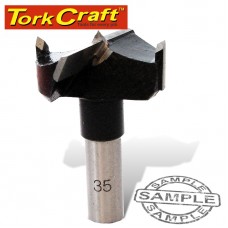Shopping Cart
0 item(s) - R0.00- Abrasive/Grinding/Polish
- Arts/Crafts
- Airbrushes/Compressors
- Cutters/Blades
- Finishing/Cleaning Products
- Flexible Shafts
- Framing
- Glue Guns/Wood Burning Pens
- Mats
- Rotary Mini
- Rulers
- Scissors
- Wood Turning Chisels/Lathes
- Batteries
- Blow Torches
- Clamps/Jigs
- Biscuits
- Cabinet Jigs/Instal Tools
- Clamps
- Band Strap Cord / Frame Clamp
- Bar Clamps
- C/G-Clamps
- Clamp Storage
- Corner Mitre / Angle Clamps
- Edging Clamps
- F-Clamps
- Guide Rail Clamps
- Lever Clamps
- Parallel Clamps / Revo
- Pipe Clamps
- Quick / Hand Clamps
- Sash Clamps
- Sets
- Spare Parts
- Special / Other Clamps
- Spring Clamps
- T-Tracks Face Pocket Hole
- Toggle / Bench Dog Clamps
- Dominoes
- Doweling
- Drilling Jigs
- Guides/Supports/Accessories
- Lock Mortising
- Magnets
- Nibblers/Shears
- Pocket Hole/Decking
- Router Jigs
- Sawing Jigs
- Spare Parts
- Square Chisel Mortiser
- Vices
- Workbench/Router Table
- Cutting/Sawing
- Drilling
- Fan Merchandise
- Hand Tools
- Chisels
- Edge Trimmers
- Electric Cable Joints/Clamps
- Files
- Glass Cutters
- Glue Applicators
- Grease Guns/Accessories
- Hacksaws
- Hammers/Axes
- Hand Saws
- Hand Stapler/Riviter/Tape Tool
- Hand Taper Reamers
- Impact Sockets
- Magnifiers
- Meter Sealing Tools
- Other Hand Tools
- Pipe Cutters/Deburring Tools
- Pliers
- Bent Nose Pliers
- Bolt Cutters
- Chain Lock Grip Pliers
- Circlip Pliers
- Combination / Fencing Pliers
- Diagonal/Side Cutters
- End Nippers
- Eyelet Pliers/Grommet Set Tool
- Flat Nose Pliers
- Lock Grip/Vice Grip Pliers
- Long Nose Pliers
- Revolving Punch Pliers
- Round Nose Pliers
- Sets
- Sheet Metal Pliers
- Tweezers
- Water Pump Pliers
- Wire Stripper
- Punches
- Scroll/Fret Saw Frame
- Snips/Shears
- Sockets
- Tool Belts/Pouches
- Tool Boxes/Trolleys/Kits
- Wood Plane
- Wrenches/Spanners
- Measuring/Marking
- Bore Gauges
- Caliper/Thickness Gauges
- Calipers
- Depth Gauges
- Gauge Block Sets
- Gauges
- Hardness Testers
- Height Gauges
- Indicators
- Laser Dist Meter/Range Finder
- Levels
- Marking
- Measuring Tool Sets
- Metal Detectors
- Micrometer
- Microscopes
- Pens/Pencils/Note Books
- Positioned Gauges
- Protractors/Squares
- Roughness Testers
- Rulers
- Scribers/Penknife
- Specialised meters
- Straight Edges
- Tape Measures
- Merchandising
- Outdoors/Lifestyle
- Packaging
- Pneumatics
- Air Treatment
- Compressor Spares
- General
- Hose Fittings
- Power Tools
- Pressure Gauges
- Prevost System
- Pu Fittings
- Reels/Pipe/Hose/Tubing
- Spray Finishing
- Power Tools
- Cordless
- Electric
- Festool Spare Parts
- Router Bits
- Architectural Bits
- Bearings/Bushings
- Bull Nose
- Dish Carving
- Domino Cutters
- Door Making Bits
- Fluting/Beading
- Jointing Bits
- Louvre/Shutter Bits
- Plunge Cutting Grooving Bits
- Profiles
- Pulls/Handles
- Rabbeting Bits
- Reducing Sleeves/Collets
- Sets
- Slotting Bits
- Spare Parts
- Special Bits
- Spindle Cutters
- Straight Bits
- Trimming Bits
- Turn Over Knives
- Safety
- Screwing/Fastening/Fixing
- Bonded Anchors
- Direct/Manual Fastening System
- Facade Insulation Fixings
- Fasteners
- Foams/Sealants/Adhesives
- Lightweight Fixings
- Mechanical Anchors
- Passive Fire Protection System
- Roofing Insulation Fixings
- Screwdriving Systems
- Sharpening
- Specialist Aerosols
- Transport
- Unassigned
- Unknown
- UNKNOWN
- Warranty
HINGE BORE BIT 35MM TUNGSTEN TIPPED
Ex Tax: R317.79
Add to Compare
35mm Hinge boring bit - TCT.

ForEuropean style concealed hinges. Includes side cutting 'spurs' for fast, cleanboring.
- Super-strength steel
- TCT head with precision balancedcentre point
- 2 TCT precision ground cutting edges (Z2)
- 2 Ground spurs (V2)
The secret to creating seamless, flush cabinets in your home is to use hiddenhinges instead of the traditional cabinetry hardware. They are also known as cuphinges or European hinges, concealed hinges install on the inside of the door.
Unlike traditional, exterior butt hinges, these hidden hinges can adjustafter installation for a perfectly hanged door.
They require a 35mm metric Forstner drill bit – also called a hinge-boringbit - for their installation because these hinges were only available fromEuropean manufacturers for many years. These hinges are readily available inmost hardware stores.


Concealed hinges require a flat-bottomed hole drilled in the back of the door stile. The depth and location of the hole vary according to hinge type, but the diameter is usually 35 mm. If the door is to have a profiled edge, make sure that the router bit doesn’t cut into the hinge hole (or vice versa).
Holes for concealed hinges can be drilled with any of several jigs that work in conjunction with a handheld drill. The jigs can be adjusted to various door configurations. The most common tool used for drilling these holes, is a drill press and considered the safest method too.
Overlay or inset type hinges
Cabinet doors are lumped into two basic groups, inset and overlay, and each
requires different concealed hinges. Inset doors are positioned inside the
frame. Overlay doors are mounted over the face frame, extend 19mm or more past
the opening, and are far less difficult to install. Half-overlay doors continue
9mm to 12mm past the opening.
| Description | Spec |
| Best application | Concealed hinges |
| Cutting Width | 35mm |
| Safe application | Drill press |
| Type | Tungsten Carbide tipped |


